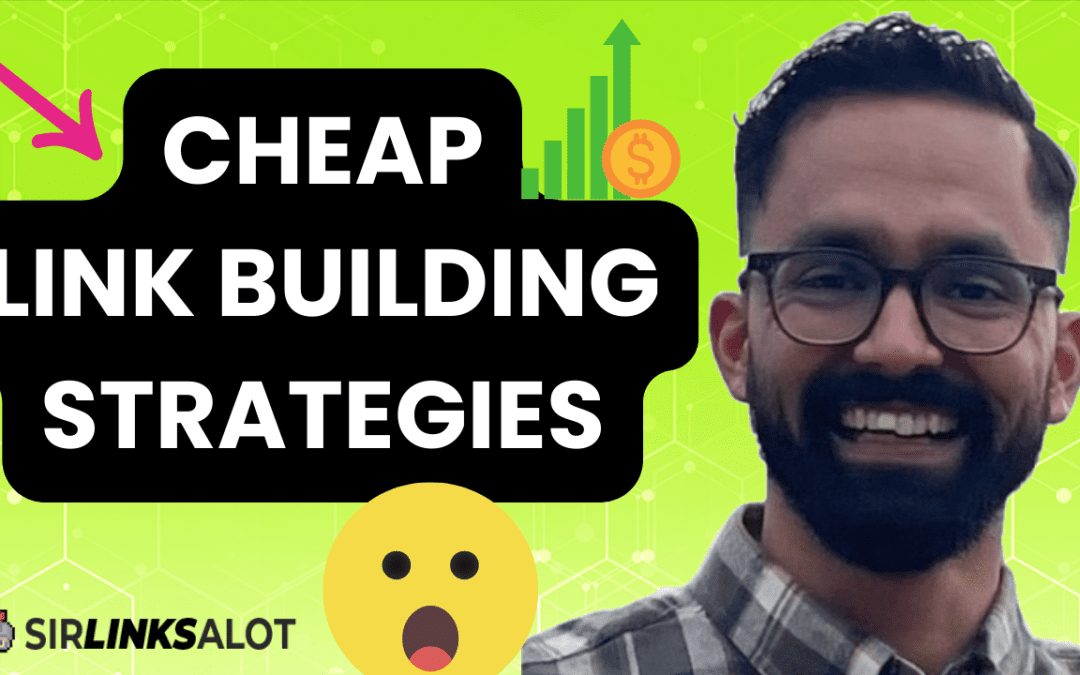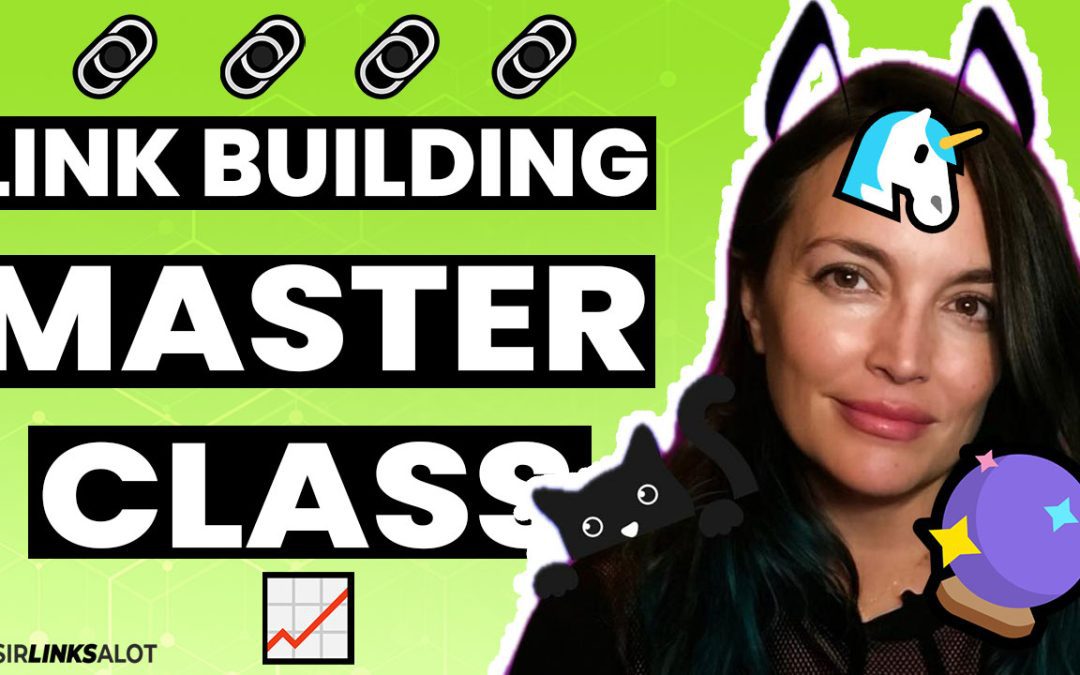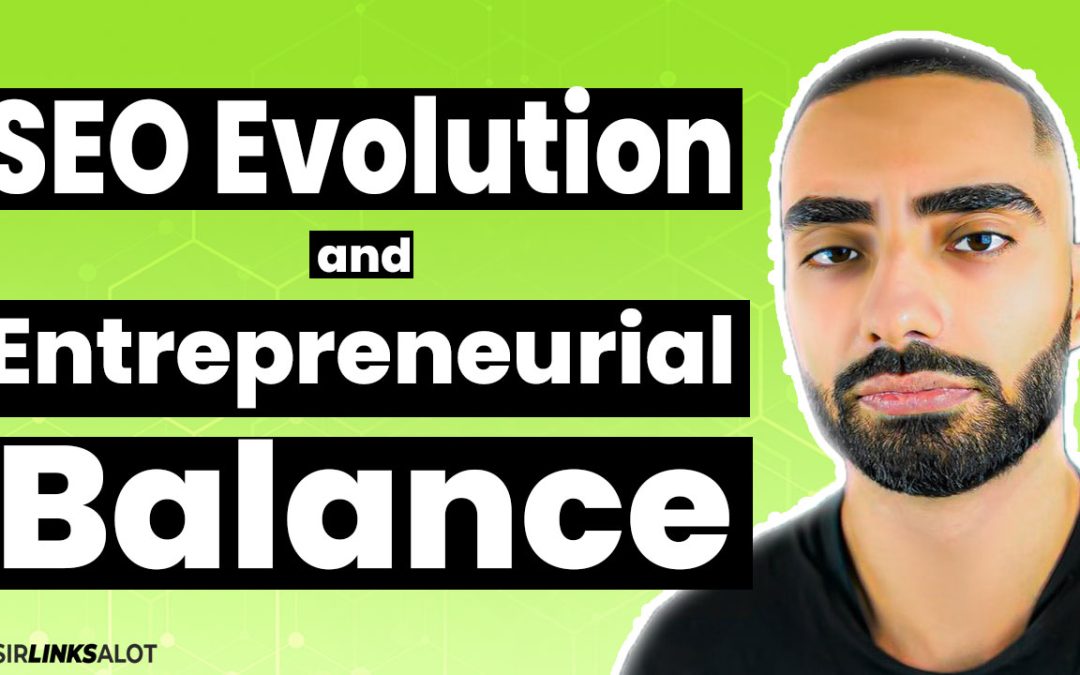Steve Toth on Content Clusters And ChatGPT
Join the 1,000+ brands that trust us for their link building.
Steve Toth is the creator of SEO Notebook, founder of SEO IRL, and an all-star SEO consultant.
In this episode of SirLinksalot’s SEO Podcast, Chris and Nick sit down with Steve and chat about his experience with a 1.8 million traffic site, verticalized content clusters, and how he’s currently using ChatGPT in his workflows.
Think you’d be a great addition to our podcast or have a request for someone to be featured? Head over to our podcast discovery page.
Watch the Podcast:
Podcast Summary:
[01:19] How do you spend your day-to-day at work?
Most of it is spent on research development. I work with a roster of fairly high-end clients on a hybrid model of both consulting and recurring work, so I need to find ways to prove value for them. A lot of that comes through automation and working with Python and various APIs, trying to scale my strategies across my client base. My team is a mix of freelancers and full-time employees. The team is around 5-7 people at any given time.
[03:37] Do you miss corporate life?
I definitely like working for myself. Freshbooks was an amazing opportunity, and I tried to make the most of it when I was there. I don’t miss the other things that come with working for a corporation. Luckily, at Freshbooks, I was able to focus on SEO and not have too many other distractions for the most part. Working in-house is a great experience for SEOs because you get to focus on one website, and you’ll really learn a lot if you start out that way. I was side hustling for a few months while at Freshbooks, so I had that practice before starting my own business.
[10:21] Do you do your own R&D?
Sometimes, I draw inspiration from my clients. One time we were talking about we could snag the maximum amount of featured snippets, so we created a script that searched each featured snippet, searched each keyword, and recorded all the meta-descriptions that were ranking so we knew exactly which bit of text we had to tweak to get the featured snipped and which sites were earning those placements. We created that script to streamline our ability to adapt our content to rank for more snippets.
[12:29] How did you get started in SEO? What happened before Freshbooks?
I worked for a web development company as a copywriter in 2010 when blogging was taking off. I basically started the blog for that website and started messing around with ranking for keywords. I parlayed that into an agency job in 2011, where I was hired as a social media manager and worked alongside the SEO guys till 2017. I worked for another agency for a year after that before finally working for Freshbooks.
[14:28] What got you started on the content path?
It goes back to high school when I dropped math and told my parents that I didn’t want to go down the science and math track. I’m joking; but, I’ve always been a writer. It’s part of what I think made SEO Notebook successful. Writing to me is like a puzzle: It’s a game to make yourself as succinct as you can.
[16:30] Which SEO archetype do you fall into: mechanic, socializer, or collector?
I’m a mix of 1 and 2. I’m good at on-page, and I understand that your network is your net worth, even if I’m not an extrovert.
[18:01] What are “verticalized content clusters”?
“Vertical” means a segment of a keyword that targets a certain group. The most popular one that I worked on was Freshbooks, where we had “invoice template” as the main keyword, but we also had pages for graphic designers, contractors, and freelance writers. We basically were able to take that keyword and span it across a bunch of different verticals. You can determine whether verticalization of keywords is a viable strategy for you by putting the keyword in the Google search bar then “for”: ex. “invoice template for…”, “contract template for…”. That will indicate whether or not those keywords are viable for you. If you’re choosing a keyword without bidding on it, you can go into Ahrefs and check the page search history on a keyword. If you see that a website has been bidding on a keyword for a long time, it’s probably a good indication that the keyword is profitable for them. If you’re still concerned about that and not sure, it doesn’t hurt to run a paid search campaign and see how that converts before you build out a 120-page cluster.
[22:38] You’re not a big fan of using tools as far as keyword research goes. Instead, you like to use Google itself. For these big corporate clients, is this how you do keyword research with clusters?
I like Google more than I do tools because when you use tools, you use what the majority of people are targeting, and you end up with the same keywords. I sometimes use on-page tools like SurferSEO, but when it comes to keyword research and deciding what to write about, I want to use different tools other than on-page tools. As good as on-page tools are, you need to offer some unique value in your posts to help them rank. You don’t want to have the same information as the top 10 results. It will give a poor user experience for Google to rank ten identical articles. Differentiate yourself.
[27:12] What is your content creation process?
It starts with the brief: You have to outline the skeleton—what you’re writing about. Recently, I’ve been using ChatGPT to help give the writers some direction on what to include in each subsequent paragraph underneath the heading. Arm that writer with as much information as possible. Give them source material. Give them unique information to add to each post. Basically, ensure they have everything that they need to write, maybe not like a subject matter expert, but to be able to execute on a brief.
[27:12] Freshbooks is around DR 85. It’s a super authority site. Were you actually building links? If so, where were you building links to? The parent page only, or to each individual template page?
80% of the links we were building went to the main invoice template page. 20% went to the secondary and tertiary pages, and the money page. It can get pretty challenging doing HARO and other homepage-building techniques with a site that large. I don’t think we did much homepage link-building, but we also got a ton of natural homepage links, so it didn’t make that much of a difference.
[33:46] How aggressive were you with anchor texts?
We were pretty conservative in not having too many exact-match, but we would add words to each side of the keyword to make them nice and varied. I also had a spreadsheet that checks up against the anchor text you already had based on an Ahrefs export which enables you to not repeat the same anchor text, if possible. I want to give users an indication of what lies beyond that link and to maximize the amount of referral traffic I get from a link.
[36:23] What were your link-building standards at Freshbooks?
I had a very nice budget to play with at Freshbooks because we were a legit company, we had an opportunity to be linked on various authority sites. Our standards were around domain and page relevance more than anything. We weren’t getting links on DR 20 websites. More like DR 60+ and as low as 200 with a high-quality guest post. In terms of budget-per-link, it could go to $1000 per link if it was something we thought was worth it.
[39:28] What were the biggest challenges or bottlenecks that you faced while creating these clusters across these different websites?
When you have client buy-in, and the client staffs the project accordingly, it’s pretty smooth sailing. But that’s not going to be the case all the time. Some clients will have slower writers who are maybe not as good. I always recommend writers to them, but you won’t always have follow-through on the client’s end.
[40:59] Do you do regular (not verticalized) content clusters, and how does your approach change as far as planning them out?
You can use ChatGPT not just to create content clusters but to give, for example, a high-level overview or a walkthrough from A to Z on certain topics. You can see which different topics could warrant their own pages. This is a way to build a topical map. You can also go through your competition and see what they’re talking about to create a non-verticalized cluster.
[44:02] Regarding your SEO Notebook newsletter, what do you think is your most underappreciated note in the past year or so?
I just released a new note on Information Gain. It’s basically a strategy whereby, to add unique information to a site, you want to Google your keyword and then something like file-type PowerPoint or file-type PDF doc, etc. You can then find unique information that’s contained within those kinds of files versus other information on webpages that somebody else is researching.
[49:10] What are your thoughts on newsletters as a business model?
It’s a great marketing strategy. You just have to be religious about your posting. You have to post at least once a week, or else people are going to totally forget who you are. With almost four years of doing SEO Notebook, I haven’t missed a week. Lots of life happens in four years, but one thing that I’ve dedicated myself to is publishing a new piece of content every week.
[50:57] What are your general thoughts on AI? Blessing or curse?
We don’t yet know how it’s going to affect search behavior. There are people who won’t change their search behavior until everyone has changed their search behavior. There are people like us who are on the cutting edge and have realized that I can just ask ChatGPT what to do during my vacation to Austin over Googling the top 10 things to do in Austin. We know that that exists, but we don’t know if the general population knows that. Google has a vested interest in trying to keep up with Bing without doing it so much that they’re going to cannibalize their own search traffic. The average person doesn’t even know that they’re clicking on ads, let alone that they can search on something besides Google to get their answer.
[53:55] What are the main tasks you use AI for?
It’s a great tool for coming up with schema. If it takes you four prompts to get what you want, you can ask ChatGPT to give you one prompt that could achieve the above.
[55:07] What are your thoughts on AI content?
When it comes to client work, we’re pretty conservative about using AI content. If we do, we’re using a writer to add facts and quotes and to clean up the sentences to make them more compact (and sound less like AI). We don’t use AI for large-scale content production like briefs.
[56:35] What are your thoughts on the most recent core update on March 23?
I haven’t been affected by it. We have to wait and see what the impact will be.
 Article by:
Article by:
Chris Tzitzis
Hey I'm Chris, one of the founders here at SirLinksalot. I'm into building internet money machines (affiliate websites) and specialize in building backlinks. Find out more about me and my link building team.
 Questions or Comments?
Questions or Comments?
We are active in our Facebook Group seven days a week and would love to hear from you. Ask us questions, learn from other group members, and share your knowledge.
Related Posts
Ready To Start Building Your Rankings?
Your link building journey to the top of Google starts today!
Apply for Managed Link Building to get a free analysis and game plan, or order backlinks a la carte.
Link building services that work.


